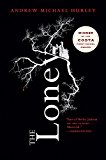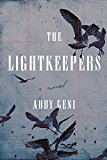Summary | Excerpt | Reviews | Beyond the book | Read-Alikes | Genres & Themes | Author Bio

From its richly atmospheric opening to its dramatic conclusion, Peter May's Coffin Road is a treat for lovers of crime fiction.
The novel has several players and the first character we encounter is immediately intriguing. On the opening page a man emerges from the sea on the island of Harris in the Outer Hebrides (see 'Beyond the Book') but he has no idea where he is or who he is. Worse, he has "a consciousness of something so awful" that he does not want to remember it. There is clearly a major trauma leading to his memory loss, but what is it, and was he involved as a victim, a witness, or was he the perpetrator? Soon this narrator learns from a neighbor that his name is Neal Maclean and he has been living on the Isle of Harris while working on a novel (more about this later).
Neal begins to piece together some facts about himself but each discovery leads to new questions and he begins to suspect he has been leading a double life. One day, at home, Neal finds a map with a track highlighted. It is known as Coffin Road. Neal decides to explore the trail and in doing so, uncovers a hidden set of beehives. Although he still can't remember his own name, Neal does know a great deal about bees. The author, Peter May, has researched the ongoing controversy about the possible harm to bees being caused by neonicotinoids (a form of pesticide widely used in farming) and brings it to life here.
Meanwhile, in Edinburgh, teenager Karen Fleming is struggling to cope with the suicide of her father two years previously. Skipping school and openly rebelling against her mother, Karen decides to find out more about the Dad she loved. As Karen begins to suspect that he may have been caught up in a shocking environmental cover-up, she is brave (or foolhardy) enough to set out alone to find some answers.
The last strand in this twisting tale is a police investigation, led by Deputy Superintendent Gun. An unidentified middle-aged man has been bludgeoned to death with a rock on Eilean Mor, one of a remote set of islands that form the Flannan Isles. According to Scottish history, three lighthouse men did actually disappear on this island in 1900.
Now Neal Maclean is told he has been a frequent visitor to this same lighthouse on Eilean Mor because he is supposedly working on a novel about the real-life 1900 disappearance. Unhappily for him, Maclean can find no sign that he has written anything at all. In an effort to find out more, he goes to Eilean Mor, finds the dead body just before the police do, and immediately fears that he is the killer. Maclean is spotted fleeing the scene and so it is not long before he becomes DS Gun's prime suspect.
From the outset, the harsh Hebridean landscape parallels the blank spaces in Neal's memories. It is also fitting that an attempt to expose the cover-up of an environmental scandal is played out in this most natural and unspoiled setting. And when Karen leaves the city to uncover the truth, the bleak isolation that has kept the novel's atmosphere charged with menace, raises the stakes as she risks personal safety to find the answers she seeks.
Coffin Road perfectly combines a fast-paced murder mystery with a fascinating real-life environmental crisis. He also continues, as he did in his critically acclaimed Lewis Trilogy of novels, to exploit the grandeur, isolation and stormy beauty of the Hebridean Islands to create a chillingly atmospheric and gripping read.
![]() This review was originally published in The BookBrowse Review in November 2016, and has been updated for the
November 2017 edition.
Click here to go to this issue.
This review was originally published in The BookBrowse Review in November 2016, and has been updated for the
November 2017 edition.
Click here to go to this issue.

If you liked Coffin Road, try these:

by Andrew Michael Hurley
Published 2017
The eerie, suspenseful debut novel — hailed as "an amazing piece of fiction" by Stephen King — that is taking the world by storm.

by Abby Geni
Published 2017
A debut novel from a talented and provocative new writer which upends the traditional structure of a mystery novel while also exploring wider themes of the natural world, the power of loss, and the nature of recovery.
Your guide toexceptional books
BookBrowse seeks out and recommends the best in contemporary fiction and nonfiction—books that not only engage and entertain but also deepen our understanding of ourselves and the world around us.